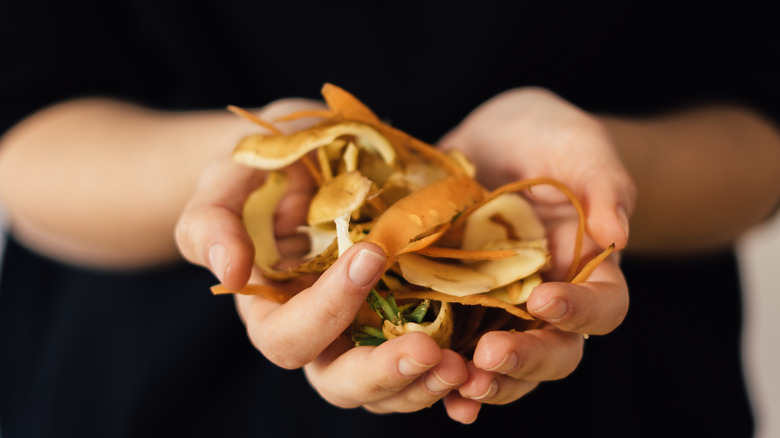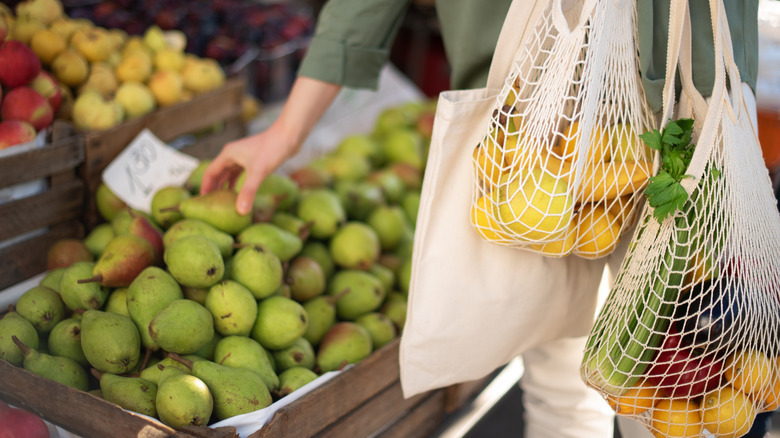The Truth About Upcycled Food
When discussing the state of food waste in the United States in 2021, RTS, a waste and disposal company, shared the fact that Americans alone waste 80 billion pounds of food every year. To combat such egregious amounts of food waste, some have turned to upcycling their food stuffs.
To upcycle food, as defined by the Upcycled Food Association, is to repurpose parts of foods one would not eat for other uses with a verifiable supply chain and a positive ecological impact. Further definitions the association gave are that the new foods must be for human consumption and should be economically sustainable as well. In more concrete terms, Fox News gives the examples of transforming avocado seeds or vegetable pulp into juices, chips, or other foodstuffs. Too Good To Go, the delivery app that allows customers to order from restaurants meals that would otherwise go to waste, doesn't count as upcycling as it sends made meals to other eaters instead of reimagining a previously inedible piece of food as a different product.
However, you can upcycle foods at home without worrying about official definitions. The Ethical Choice lists five simple ways you can implement the upcycling idea in your kitchen, such as using the leafy carrot top as the basis for a pesto recipe. Similarly, The Spruce Eats suggests, among other things, that you include the peels from your carrots as the carrot part of carrot cakes. Done properly, these tricks will eek extra use from trash.
Upcycling needs to up its game
For upcycling to become a means towards alleviating the problems of food waste, it needs to dominate food practices, not simply occupy a side hobby. Otherwise, there will be slight reductions in food waste, but the structure of the food industry will still channel towards the ecologically unsustainable relationship we have with food.
That will prove difficult, as Dr. Jonathan Deutsch, director of the Drexel Food Lab at Drexel University, explained to FoodPrint: "You can take vegetable scraps from ... production lines to make upcycled vegetable broth but ... it's not like carrots and celery are super expensive so, in some cases, trucking these scraps around may be more expensive than ... ordering a tractor trailer load [of vegetables]." However, as smaller upcycle food brands establish themselves, they may find proven methods that will lead to bigger corporations taking notice.
Between the way food is conveyed to the customer and implementation of upcycling practices in the home, there is a real chance that food waste can be reduced.

